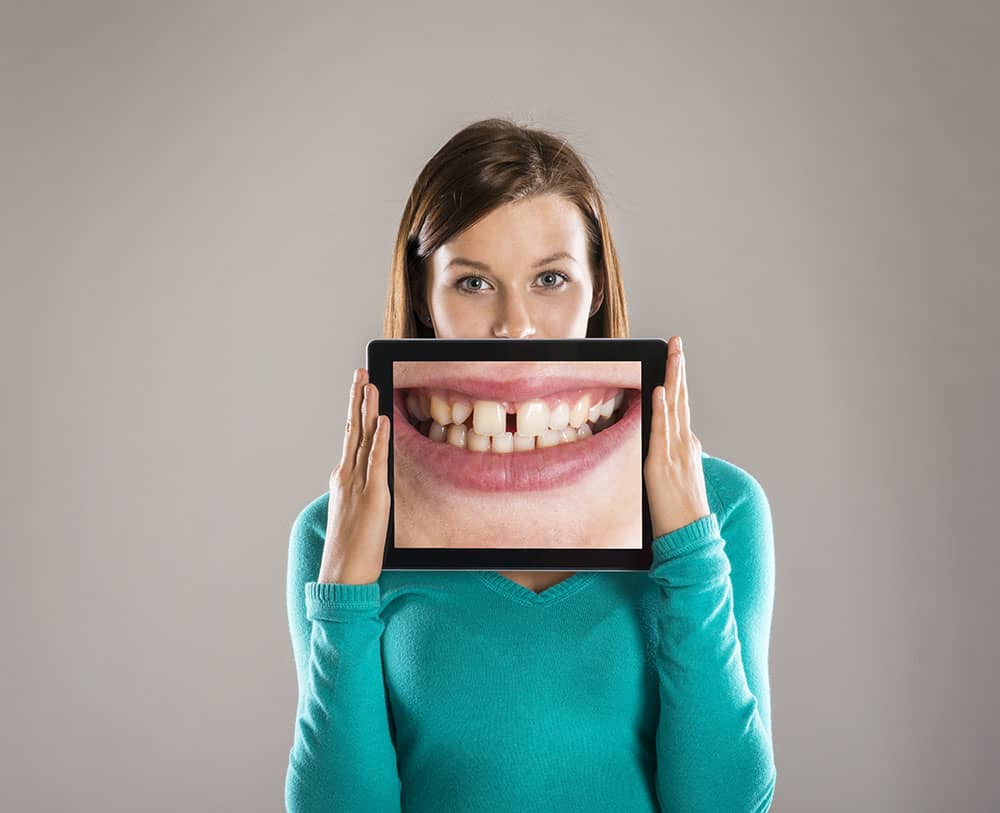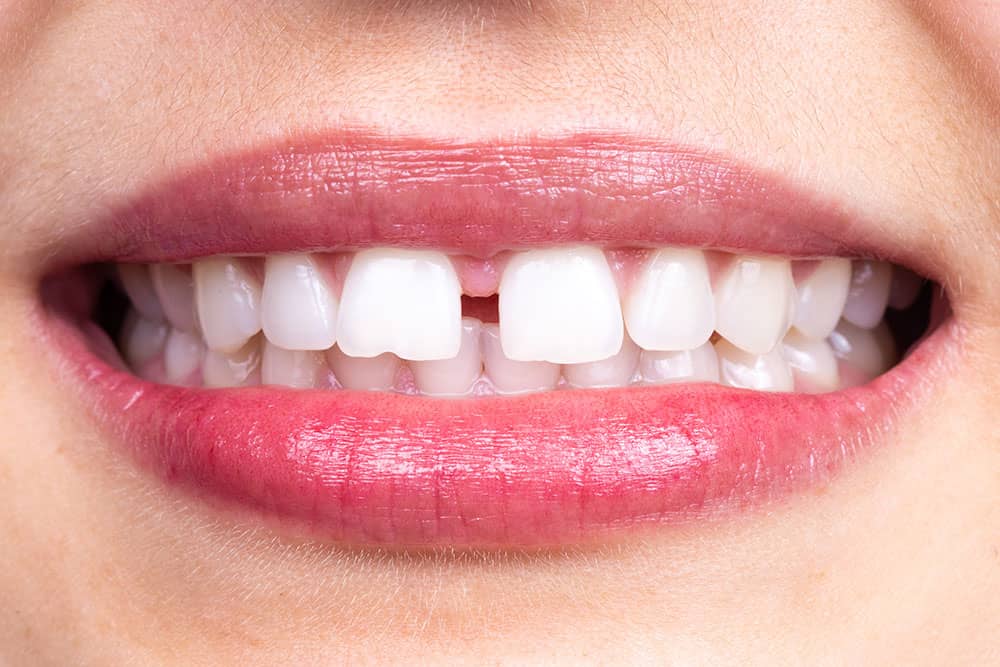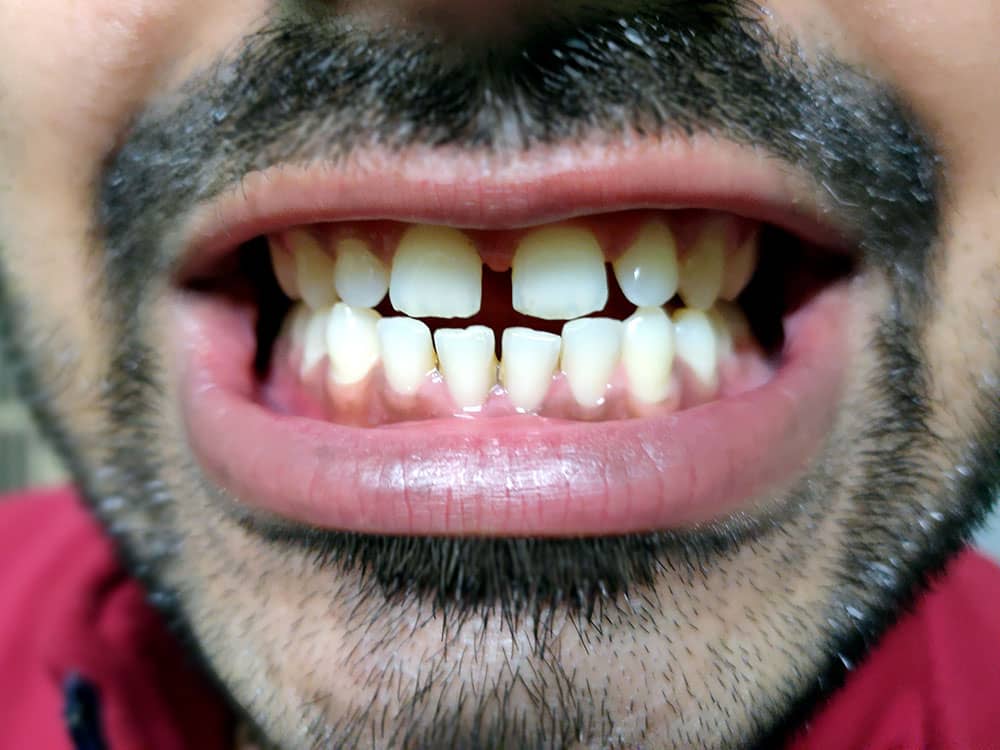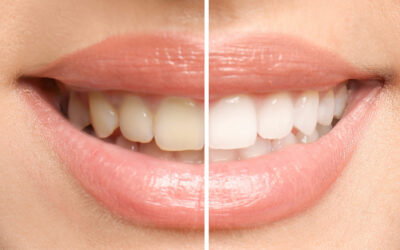Do any of your teeth have gaps between them? This space — which orthodontists call a ‘Diastema’ — is a common occurrence when it comes to teeth.
While this feature can add a unique appeal to your smile, some individuals are bothered by the appearance of gaps in their teeth or experience problems from Diastema.
Here, we’ll look at what causes gaps in teeth, how to treat Diastema, questions about gaps in teeth, and more.
What Causes Gaps Between Teeth?
The causes of spacing between teeth can be hereditary or a result of bad habits. There are several causes of diastema including:
- Smaller than average teeth
- Larger than average jaw size
- Growth irregularities
- The tissue between the teeth (the labial fraenum) being too generously sized
- Gum disease (inflammation around the bone and gum from gum disease can loosen teeth and lead to gaps, making it important to get regular dental check ups to recognise and treat gum disease before it advances)
To maintain optimal oral hygiene, feel free to read our blog on 10 Habits for a Healthy Mouth.
Do Gaps Between Teeth Get Wider With Age?
Teeth are constantly growing and shifting, especially in your younger years. However, teeth can continue to shift throughout an individual’s lifetime.
This means that gaps may grow over the years, or get smaller in some cases. A consultation with an orthodontist is the best way to evaluate any gaps and understand how your teeth are shifting with age.
Can Gaps Between Teeth Be Formed From Bad Habits?
Yes, bad habits can result in gaps and spaces between teeth. One of the most popular bad habits that can lead to Diastema is tongue thrusting.
This movement occurs when people push their tongue into their teeth when they swallow rather than the roof of their mouth. This tongue thrust, if strong enough, can gradually cause teeth to get pushed apart.
Are Gapped Teeth Unappealing?
Do you like the gap in your teeth? Does the gap cause you any problems? If you enjoy the appearance of your gap and it does not cause you any issues, then it can certainly add character, charm, and beauty to your appearance.
If you are concerned the gap in your teeth is affecting you functionally, an evaluation by an orthodontist is the best way to determine the health of your smile.
Can Gaps In Teeth Close On Their Own?
Yes, in some cases gaps between teeth can close on their own. Baby teeth often feature gaps in between that naturally close when adult teeth come in.
This is one of the reasons early orthodontic evaluation is important for children. Any spacing can be evaluated early on and monitored to make sure their smile is healthy and developing normally.
How Are Gaps Between Teeth Closed?
Many different methods can be used for treating diastema. Treatment depends on the patient’s age, the size of the gap, tooth size, tooth anatomy, the desired outcome cosmetically and functionally, and more.
The main options for closing a gap between teeth include:
- Composite veneers
- Porcelain veneers
- Braces
- Direct Bonding
- Clear aligners
An orthodontist can evaluate your diastema, explain your options, and develop a customised plan for treatment.
How Long Does It Take For Braces and Other Treatments To Close Gaps In Teeth?
The time it takes for braces to close a gap involves a variety of factors such as age, the degree of spacing, bone density, and more.
Changes usually become visible within about four to six weeks of beginning treatment. If it is only a small gap that needs to be closed, it may take just six to eight months for treatment with braces to be complete.
Every case depends on the individual but general treatment will likely take between 6 to 24 months. A personalised evaluation with your orthodontist will give you the best timeline of what to expect for diastema treatment.
Do Teeth Gap Bands Work for Closing Spaces in Teeth?
“Gap bands”, a controversial DIY treatment method for closing spaces between teeth may offer a low price, but it is not recommended by health professionals.
The method uses small rubber bands that loop around the spaced teeth and are intended to pull the teeth back together. It sounds simple enough and the price point is appealing to many individuals, but the rubber bands can actually be quite dangerous.
The rubber bands can move up underneath your gums and become lodged, causing irreversible damage to the surrounding teeth such as loose teeth or teeth that need to be removed entirely. We do not recommend gap bands for treating spaces between teeth.
Do You Have Questions About Diastema?
If you have questions about closing gaps between teeth or would like to schedule a complimentary consultation, please feel free to reach out to our caring, experienced team at 123 Dental.









